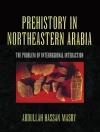Understanding the history and philosophy of biological systematics (phylogenetics, taxonomy and classification of living things) is key to successful practice of the discipline.
In this thoroughly revised Third Edition of the classic Biological Systematics, Andrew V. Z. Brower and Randall T. Schuh provide an updated account of cladistic principles and techniques, emphasizing their empirical and epistemological clarity. Brower and Schuh cover:
-the history and philosophy of systematics
-the mechanics and methods of character analysis, phylogenetic inference, and evaluation of results
-the practical application of systematic results to:
-biological classification
-adaptation and coevolution
-biodiversity, and conservation
-new chapters on species and molecular clocks
Biological Systematics is both a textbook for students studying systematic biology and a desk reference for practicing systematists. Part explication of concepts and methods, part exploration of the underlying epistemology of systematics, This third edition addresses why some methods are more empirically sound than others.
İçerik tablosu
Section I: HISTORICAL AND PHILOSOPHICAL BACKGROUND FOR SYSTEMATICS
1. Introduction to Systematics: First Principles and Practical Tools
2. Systematics and the Philosophy of Science
Section II: CLADISTIC METHODS
3. Characters and Character States
4. Character Polarity and Inferring Homology
5. Tree-Building Algorithms and Philosophies
6. Evaluating Results
Section III: APPLICATION OF CLADISTIC RESULTS
7. Species: Concepts, Recognition, and Analytical Problems
8. Nomenclature, Classifications, and Systematic Databases
9. The Integration of Phylogenetics, Historical Biogeography, and Host-Parasite Coevolution
10. Evaluating Hypothetical Scenarios of Evolution, Ecology and Adaptation
11. Understanding Molecular Clocks and Time Trees
12. Biodiversity and Conservation
Postscript: Parsimony and the Future of Systematics
Yazar hakkında
Andrew V. Z. Brower is an Assistant Director of the National Identification Service, Plant Protection and Quarantine, and Animal and Plant Health Inspection Service with the United States Department of Agriculture. He is also a Research Associate with the American Museum of Natural History, New York, and the National Museum of Natural History, Washington, DC.Randall T. Schuh is George T. Willett Curator Emeritus of Entomology and Professor Emeritus at the American Museum of Natural History, New York. He is also affiliated, in emeritus status, with Cornell University and City University of New York.












